When your heart skips a beat, it could signal a problem ... or just be too much coffee
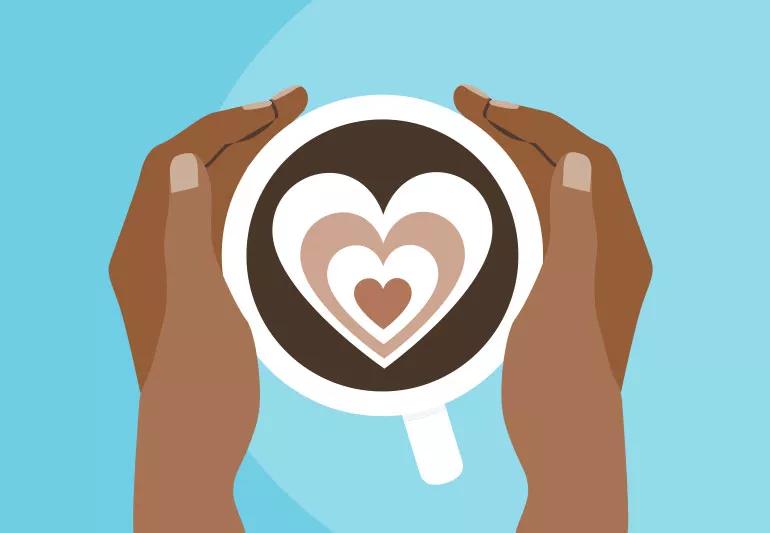
Hollywood rom-coms may have you thinking that the flutter in your chest is the beginning of your happily ever after. But what about those times when your heart skips a beat and romance isn’t the root cause?
Advertisement
Cleveland Clinic is a non-profit academic medical center. Advertising on our site helps support our mission. We do not endorse non-Cleveland Clinic products or services. Policy
Should you panic if your lub-dub lub-dub becomes a lub-dub LUB-dub?
Doctors call short-lived changes in your heartbeat heart palpitations. And without any other symptoms, it’s likely a quick thump isn’t dangerous, says cardiologist Justin Lee, MD.
If you’re feeling palpitations along with other symptoms, like a high heart rate (110 beats per minute or higher), dizziness, chest pain or trouble breathing, talk with a healthcare provider or head to the emergency room. Otherwise, an occasional off-beat pitter-patter of your heart can be completely normal.
Dr. Lee helps unpack some of the common reasons your heart may occasionally beat to a different tune.
Heart palpitations are a short-lived change in your heart’s rhythm. Our heart is always pumping to move blood through our bodies, but we usually don’t feel it. So, when you suddenly notice your heart beating, it can be startling.
If you’re experiencing heart palpitations, it may feel like:
Missed beats in the upper chambers of your heart are called atrial ventricular complexes (AVCs). When they come from the bottom chambers of your heart, they’re called premature ventricular complexes (PVCs).
Advertisement
“Very frequent palpitations, when you’re having pounding sensations that happen multiple times a day, should be checked by a healthcare provider,” Dr. Lee says. “But if you’re feeling something like a fluttering or a flopping sensation once or twice a day with a normal heart rate, there could be something in your life that’s triggering it.”
Finding the trigger means you can avoid it and calm your fluttering heart.
OK, so you felt a flutter, your heart rate is normal and you otherwise feel fine.
So, what might be causing your heart palpitation?
“Often, non-threatening heart palpitations are due to an increase in adrenaline levels in your body,” Dr. Lee notes. Adrenaline is the hormone that shifts your body into “fight or flight” mode. Adrenaline speeds up your heart to prepare your body when it senses a threat.
Dr. Lee explains some common causes.
That head-over-heels falling-in-love feeling isn’t the only emotion that can make your heart race. (And, yes, it’s true that the feelings of nervousness and anticipation that can come with falling in love can, in fact, trigger your heart to skip a beat.)
Other strong emotions can cause heart palpitations as well, including:
“Oftentimes, our hearts begin to race when we’re feeling strong emotions or are feeling uncomfortable in a situation. That’s our sympathetic nervous system (fight or flight response) kicking in to help us defend ourselves from what it sees as a threat,” Dr. Lee explains. “That activation can cause the heart to jump a beat or flutter for a short time.”
He recommends calming those frayed nerves and getting your heartbeat back on track with deep breathing exercises and other relaxation techniques.
That double-espresso venti latte may not be doing your heart any favors. Researchers say that in at least one study, caffeine consumption was associated with a 54% increase in heart palpitations.
Caffeine is a stimulant. It wakes up your central nervous system, giving you a jolt and putting your body on high alert. But too many energy drinks, and your heart can go all a-twitter.
How much caffeine it takes to cause palpitations depends on your sensitivity to caffeine and other factors. Healthy adults should stick to no more than about four 8-ounce cups of brewed coffee a day.
Like caffeine, nicotine is a stimulant that can raise your heart rate and cause palpitations. Nicotine, whether from cigarettes, cigars or e-cigarettes is addictive and dangerous for your heart, lungs and more.
Advertisement
Quitting smoking is one of the best ways to lower your risk of heart disease, cancer and other deadly conditions.
When you’re pregnant, your blood volume increases a lot to support the growing fetus (we’re talking by about 50%). Your body has to work extra hard to move that blood around, which can lead to palpitations here and there. Pregnancy palpitations are very common, especially in the third trimester.
If you’re pregnant and experiencing palpitations, talk with your healthcare provider, especially if you have a heart condition or other health condition that could be related.
Now there’s a difference between a palpitation (a fleeting change in your heartbeat) and an arrhythmia, a heartbeat that’s too fast or too slow for a prolonged amount of time. Some arrhythmias can lead to stroke and heart failure.
Palpitations are the symptoms you may feel — the fluttering, the pounding and so on. Your heart rate tells you how quickly your heart is beating.
“Palpitations can have a number of causes that are not reasons to worry,” Dr. Lee says. “But if you’re experiencing palpitations and your heart rate is high or low, you should seek medical attention.”
If you’re feeling palpitations, Dr. Lee suggests checking your heart rate, either by feeling your pulse or by using a device like a smartwatch that has a heart rate monitor. A normal resting heart rate is usually between 60 and 100 beats per minute for adults.
Advertisement
If you experience palpitations on the regular or they last more than a few minutes, it’s always best to talk with a healthcare provider, Dr. Lee states. Your palpitations may just be a sign that you should cut back on the caffeine or give yourself a much-needed break. But your healthcare provider will be able to help you get to the heart of the issue.
Advertisement
Learn more about our editorial process.
Advertisement

Inactivity increases your risk of aches, pains and chronic diseases
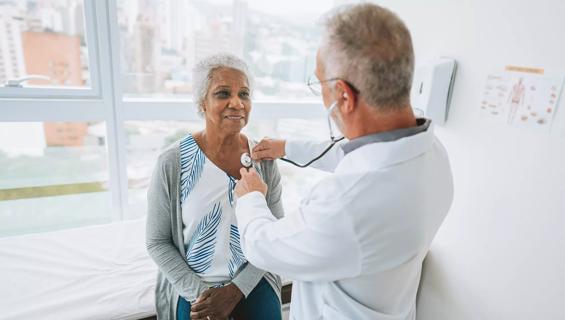
Research shows a strong association between rheumatoid arthritis and heart issues

Knowing what you can do to prevent or manage heart disease is half the battle
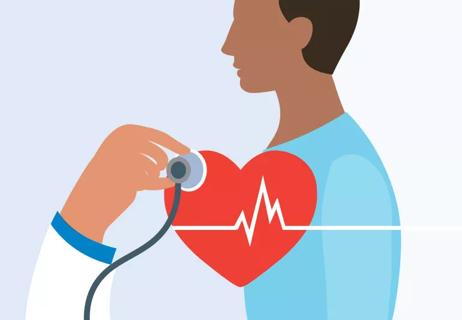
A skipped heartbeat is usually your heart returning to its normal electrical path
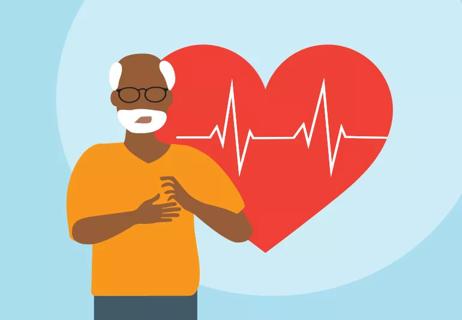
Don’t self-medicate with vitamin supplements without consulting a doctor first
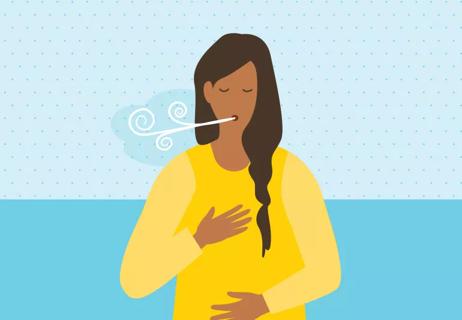
When your heart races, pounds or flutters, don’t panic, and try these calming methods
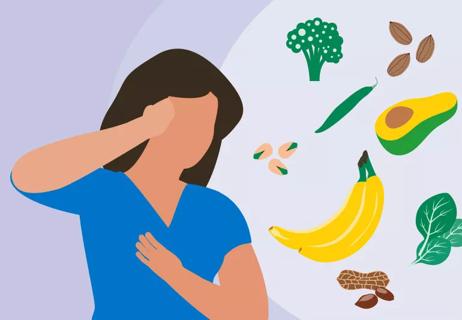
Too little magnesium can make your heartbeat go off beat
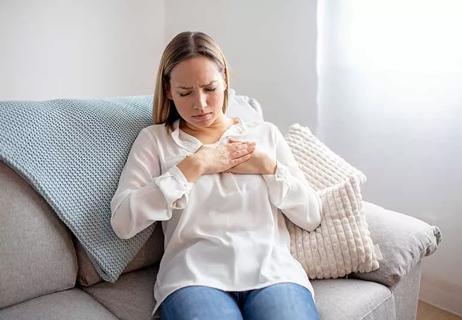
High heart rate, pain and dizziness can signal something more serious than a skipped beat

If you’re feeling short of breath, sleep can be tough — propping yourself up or sleeping on your side may help

If you fear the unknown or find yourself needing reassurance often, you may identify with this attachment style

If you’re looking to boost your gut health, it’s better to get fiber from whole foods